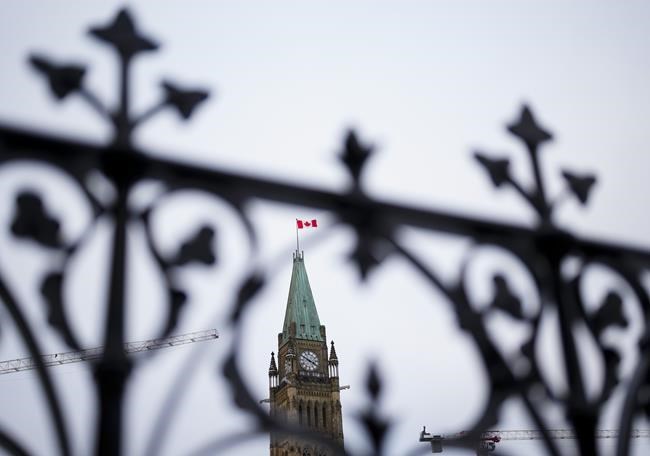OTTAWA — The federal government has released previously classified details from a report that outlines the extent to which Canada provided a safe haven to former Nazis during the Cold War.
Ottawa faced renewed calls for greater transparency about the presence of war criminals in Canada after parliamentarians inadvertently gave two standing ovations last fall to a man who fought in a Nazi unit in the Second World War.
Yaroslav Hunka, who fought for the Waffen-SS Galicia Division, a voluntary unit created by the Nazis to help fight the Soviet Union, was welcomed to the House of Commons last fall to hear a speech by Ukrainian President Volodymyr Zelenskyy.
The report by researcher Alti Rodal, known as the Rodal report, was prepared as part of a Commission of Inquiry on War Criminals in Canada in 1985 and was intended to provide the commission with information on the historical policies and circumstances that led to the presence of Nazi war criminals in Canada.
It was initially released under the Access to Information Act in heavily censored form in 1987, and more details were made public last summer in response to a Freedom of Information request by B’nai Brith Canada.
The newly released and nearly complete version makes 15 previously classified pages public, the immigration minister's director of communications, Aissa Diop, said in a statement Thursday.
"While additional information that is no longer sensitive due to the passage of time can now be released, some information still remains protected in accordance with the Access to Information Act and the Privacy Act," Immigration, Refugees and Citizenship Canada said in a news release Thursday.
There are no individuals identified in the newly released version of the document, but it does include information Canada received in confidence from foreign governments, details previously protected under solicitor client privilege, as well as information that would harm international affairs and the enforcement of Canadian laws, Diop said.
“Those who suffered under Nazi Germany and their descendants want transparency when it comes to this shameful chapter in our history," Immigration Minister Marc Miller said in a statement Thursday.
Rodal's report concludes that in the decade following the war, there was “ample opportunity” for war criminals and Nazi collaborators to enter Canada.
B’nai Brith Canada has advocated for the release of the full document since the 1980s, and filed several requests under Access to Information Laws in the past year, which the group says the government repeatedly denied.
“We welcome this almost complete disclosure of the Rodal Report,” David Matas, who represented the group during the commission, said in a statement Wednesday.
Though it has been 79 years since the Second World War and 37 years since Rodal's work was completed, Matas said ongoing mass atrocities and efforts by perpetrators to seek haven in Canada lend contemporary relevance to the report.
"We cannot learn from the past unless we know the past. The almost complete disclosure of the Rodal Report is an important step in coming to grips with our past and applying its lessons for the present," he said.
This report by The Canadian Press was first published Feb. 1, 2024.
Laura Osman, The Canadian Press

